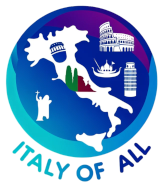The province of Mantua, located in the Lombardy region of northern Italy, is renowned for its rich historical heritage, artistic legacy, and unique geographical features. Surrounded on three sides by artificial lakes created during the 12th century, Mantua is a city of water and land, boasting an exceptional historical and cultural environment.
Geographically, Mantua is distinguished by its strategic position in the Po Valley, bordered by the Mincio River, which forms three lakes around the city: Lago Superiore, Lago di Mezzo, and Lago Inferiore. This aquatic landscape not only defines the city’s charm but also its historical significance as a defensive stronghold. The surrounding countryside is rich and fertile, supporting a variety of agricultural activities.
Historically, Mantua’s origins are ancient, with its establishment by the Etruscans, but it flourished significantly as a Roman town. The city gained greater prominence during the Renaissance under the rule of the Gonzaga family, who were great patrons of the arts. During their reign, Mantua became a hub of artistic and cultural activity, attracting artists like Andrea Mantegna and Leonardo da Vinci.
Culturally, Mantua is deeply infused with the legacy of the Gonzaga dynasty, evident in its architecture and numerous cultural institutions. The Palazzo Ducale, a vast complex of buildings with beautiful courtyards and gardens, houses a significant collection of art and historical artifacts. Mantua was declared a UNESCO World Heritage site for its Renaissance architecture and its role in the development of opera. The city also celebrates its rich literary history, famously mentioned by Virgil and in Shakespeare’s play “Romeo and Juliet.”
Cuisine in Mantua reflects the agricultural produce of the region and traditional Lombardy cooking techniques. Local specialties include “tortelli di zucca” (pumpkin ravioli), “sbrisolona” (a crumbly almond cake), and “risotto alla pilota” (rice cooked with pork sausage). These dishes showcase the blend of flavors typical of the area, often featuring butter, herbs, and fillings from the local farms.
Economically, Mantua’s economy historically centered around agriculture, particularly rice cultivation, which remains significant. In addition to agriculture, Mantua has developed a diverse industrial sector that includes chemical manufacturing, textile production, and machinery. Tourism is also a crucial economic driver, supported by the city’s rich artistic and cultural heritage and its annual festivals, such as the Mantua Literature Festival, which attracts international authors and literary enthusiasts.
Despite challenges such as balancing economic development with the preservation of its unique environment and cultural heritage, Mantua continues to promote sustainable tourism and local artisan industries to enhance its economic profile while maintaining its distinctive character.
Overall, the province of Mantua offers a compelling mix of natural beauty, historical depth, and cultural richness, making it an integral part of Italy’s cultural and economic landscape. Its ongoing efforts to preserve its heritage while fostering economic growth ensure its continued attractiveness and vitality.
Comuni in Mantua Province:
- Asola
- Borgoforte
- Borgofranco sul Po
- Acquanegra sul Chiese
- Bagnolo San Vito
- Castel Goffredo
- Casalmoro
- Bozzolo
- Casalromano
- Carbonara di Po
- Castiglione delle Stiviere
- Castelbelforte
- Casaloldo
- Castellucchio
- Commessaggio
- Ceresara
- Dosolo
- Curtatone
- Cavriana
- Mantua
- Guidizzolo
- Gonzaga
- Goito
- Gazoldo degli Ippoliti
- Marmirolo
- Gazzuolo
- Marcaria
- Medole
- Mariana Mantovana
- Motteggiana
- Monzambano
- Moglia
- Ostiglia
- Sabbioneta
- Quingentole
- Porto Mantovano
- Quistello
- Poggio Rusco
- San Benedetto Po
- Redondesco
- Roncoferraro
- Roverbella
- Piubega
- Rivarolo Mantovano
- Ponti sul Mincio
- Rodigo
- Pomponesco
- San Giorgio Bigarello
- San Giacomo delle Segnate
- Sermide e Felonica
- ** San Giovanni del Dosso
- San Martino dall’Argine
- Serravalle a Po
- Schivenoglia
- Volta Mantovana
- Viadana
- Villimpenta
- Sustinente
- Suzzara
